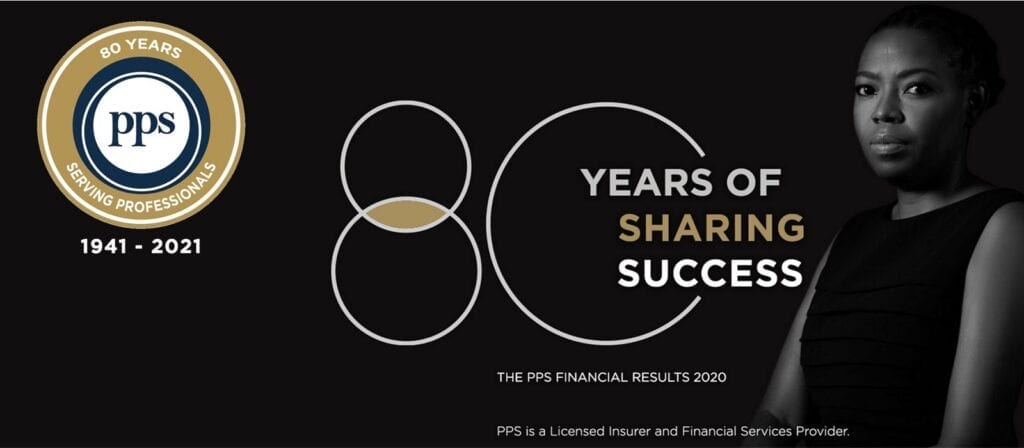We are pleased to share this latest guest blog which was written by Izak Smit, Group Chief Executive Officer of the Professional Provident Society (PPS) in South Africa. Izak is also Vice-Chair of the ICMIF Board of Directors. The article is shared here with the kind permission of PPS.
In the fullness of time, we will likely look back to 2020 and 2021 as two watershed years for corporate digital habits across the world. The global lockdowns during this time, dramatically severed the link between geography (location) and utility (adding value). A crisis has the ability to permanently change behaviour. We often need a shock to force us out of old habits, into a new way of doing things.
The migration from the physical to the digital is of course not new. For years colleagues, friends and family could collaborate and reunite across oceans by simply clicking or swiping a screen. Most of us would point to our smartphones when asked where we bank, or to our tablets for the bookstores we visit and the books we read. Showmax, Netflix and YouTube have become our movie theatres at home. Not to mention Teams and Zoom for when we meet with colleagues, friends and family. These tools have been around for years. However, perhaps due to laziness to learn and adapt, or perhaps due to social norms and conventions, most of us – most businesses – have not truly embraced the opportunities that these digital tools offer. But once certain genies are out of the bottle, they cannot be put back again.
If we look at the history of digitisation, we note that much of it happened in our lifetimes.
I can still remember the first time I saw an electronic pocket calculator (1976), the first time a friend returned from overseas showing us a digital watch (1977), and the first time we encountered personal computers (the early eighties), to name but a few. At university in the late eighties, we still used logbooks and compound interest tables in some actuarial exams. Few students had computers. We had to complete our computer assignments and projects in big laboratories on campus. Most of us can probably remember being introduced to the internet (mid-nineties), our first personal desktop or laptop (1996 for me), and our first mobile phone (the size of a murder weapon and also 1996 for me). Now, we cannot imagine a world without these.
When we talk about “digital” and “virtual”, we of course not only refer to computers and smartphones. We refer to all modern technologies, tools and related software, that allow us to operate and lead lives that are different from the physical and manual world we come from. A term that is often used today is “exponential technologies”. These technologies have one thing in common: they are supported by a digital engine of some shape or form – or more specifically – the information that fuels it. Once any domain, discipline or industry becomes information-enabled and powered by digital technology, its price/performance starts to follow Moore’s law – which states that the number of transistors on a microchip doubles about every two years, though the cost of computers is halved – an exponential improvement path. Never in human history have we seen so many technologies moving at such a pace.
The shock and artificial social experiment that the COVID-19-related events have caused have led to many of us changing old habits, inviting technology even more into our homes and lives. Much deep thinking, planning and creative work – which many of us previously had to do in office environments not so conducive to complete focus – is likely to be performed at home in future. My prediction is that travel by our executives and senior managers will half post-pandemic. A newfound appreciation of convenience, flexibility, home-bias and pollution alertness is sprouting everywhere, which will lead to more inventive ways of living our lives. At PPS the way we go about annual general meetings, strategy development, townhall sessions, personal development, and much more, has changed forever.
May we always remind ourselves how fortunate we are that we operate in the knowledge economy, where the value-add can be shipped in bits and bytes and does not need to be shipped in atoms. This allowed us to handle the lock-down well and will allow us to create productive and flexible working environments in future that will be an intelligent blend between “digital” and “physical”. As the pandemic has underlined, work-from-home is a privilege confined to certain industries and sections of society. Sadly, the pandemic underlined the spectre of old social ailments and inequalities: European data suggests that three-quarters of jobs in the highest-paying quintile can be done remotely, compared with just 3% of those in the lowest quintile. We are blessed to be part of the digital economy.
A question that I have heard many times in the past, as we develop more digital solutions for our intermediaries and members is: Can those who have grown up before the digital revolution – who are set in their paper-based ways like the grooves of an old analogue record – adapt to a digital world? The answer is yes. I ask: Those non-digital natives, do they use internet banking? The answer is almost always: yes. Do they have smartphones? Yes. If they could have made those switches in their lives because it is convenient and simple, then they can make many more.
Of course, all new digital solutions are a double-edged sword. Used correctly and it can add unbelievable convenience, flexibility and value to our lives. Get it wrong and it introduces more stress, more imbalance and more confusion in a boundaryless, 24/7 world where geography and timelines have blurred and faded. That intelligent balance between digital and physical will not be the world we come from pre-pandemic, but it is also not likely to be where we find ourselves now. May we remind ourselves that there is still richness in the physical experience, in teams coming together, in tacit learning in office environments, that can never be replaced by digital. And let us remind ourselves that one of the big things about a digital financial services organisation, where we ship bits and bytes, is that it must always remain human.






